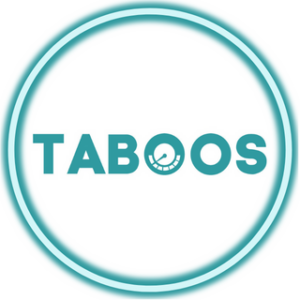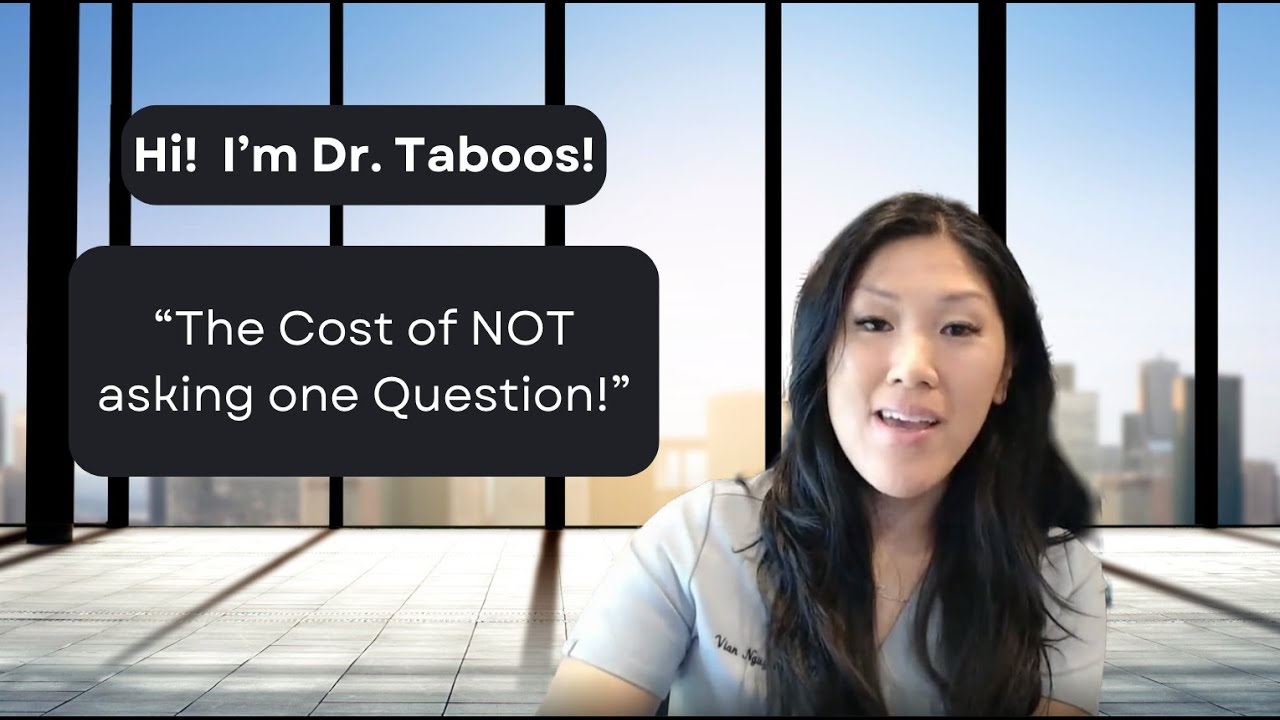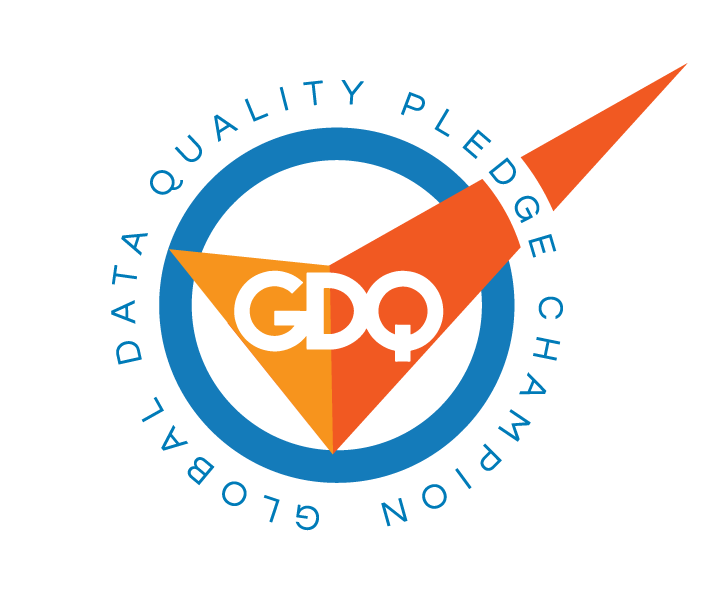Bright Lights: Taboos with Dr. Vian Nguyen
Bright Lights is an ongoing series that highlights the activities, causes, and passions that fall outside of Inlightened Experts’ dedicated day jobs, and truly set them apart. These initiatives represent experts’ abilities to transform their interests and experience into meaningful ventures that drive positive change. This installment of Bright Lights features obstetrician-gynecologist, Vian Nguyen, MD, and the app she’s building to deliver clinically valid solutions for sensitive health matters.
How did Taboos come to be? Take us from idea to execution.
Even during my seven years in executive clinical leadership, I continued to practice as an OB-GYN once a week. This decision wasn’t just about keeping in touch with the front lines. It was a strategic choice to ensure a firsthand understanding of how boardroom decisions impacted our clinicians, support staff, and, most importantly, our patients. But in this routine, I discovered an unexpected insight.
 Despite our efforts to expand clinic access and increase staffing, patients’ ‘show rate’ remained inconsistent. Looking beyond surface excuses like busy schedules or feeling healthy enough to skip appointments, I noticed a deeper issue. Patients often held back from asking vital questions, or they phrased them indirectly. It became a guessing game at times what was truly on their minds. Bottom line is that our current healthcare system is not delivering what patients need, and so either they are not prioritizing their health or they are going elsewhere for their information or care. Driven by curiosity, I delved into Facebook and Reddit forums. Here, I found patients seeking advice from peers instead of professionals. This choice — either motivated by convenience, a need for more empathy, or anonymity — reveals a significant gap in our healthcare system: a failure to engage patients on their terms.
Despite our efforts to expand clinic access and increase staffing, patients’ ‘show rate’ remained inconsistent. Looking beyond surface excuses like busy schedules or feeling healthy enough to skip appointments, I noticed a deeper issue. Patients often held back from asking vital questions, or they phrased them indirectly. It became a guessing game at times what was truly on their minds. Bottom line is that our current healthcare system is not delivering what patients need, and so either they are not prioritizing their health or they are going elsewhere for their information or care. Driven by curiosity, I delved into Facebook and Reddit forums. Here, I found patients seeking advice from peers instead of professionals. This choice — either motivated by convenience, a need for more empathy, or anonymity — reveals a significant gap in our healthcare system: a failure to engage patients on their terms.
My conclusion? The U.S. healthcare system has been in a crisis and it’s just getting even more critical.
- High healthcare expenditure: The U.S. spends more on healthcare per capita than other industrialized nations, without better health outcomes.
- Poor health outcomes: The U.S. trails in health metrics like life expectancy, infant mortality, and chronic disease management.
- Access inequality: Racial, income, and location-based disparities in healthcare access and quality, often due to systemic biases, lead to unequal health outcomes.
- Healthcare costs and personal finance: Medical expenses are a major cause of U.S. personal bankruptcies.
- Overuse of emergency rooms: Stigma related to health conditions or socioeconomic status leads to emergency room overuse for non-emergency care.
- High prescription drug costs: The U.S. faces some of the highest costs for prescription drugs globally, affecting medication accessibility for many.
 Stigmas and judgment are creating barriers, resulting in an increasing number of people who are unhappy, unhealthy, and struggling with the accessibility and affordability of care.
Stigmas and judgment are creating barriers, resulting in an increasing number of people who are unhappy, unhealthy, and struggling with the accessibility and affordability of care.
Can you provide a brief overview of your mission?
Our mission is to offer simple, non-judgemental care for sensitive health matters, with the goal of cultivating happier, healthier humans. We focus on developing a platform that emphasizes anonymity and privacy, encouraging people to take the initial step towards addressing their concerns. By ensuring access to accurate and clinically valid information, we help people get the help they need, at their convenience.
Tell us more about Taboos’ target audience.
Stigma is a universal experience, often unrecognized by those it affects. There are stigmas that are readily apparent, such as being overweight, one’s sexual orientation, skin color, or experiencing depression. However, other stigmas are more understated and can manifest in concerns like, “If I take my child to the doctor for this issue, will I be judged?” Subtle internal dialogues also reflect these hidden stigmas: “I am too old to ask for botox,” “I don’t want the doctor to think I’m a hypochondriac,” or “I don’t want to take up the doctor’s precious time.”
What key milestones has Taboos accomplished to date?
I have dedicated several months to conducting surveys, interviews, and research, uncovering key insights:
- The increasing costs in healthcare, fueled by a neglect of preventive measures for stigmatized health conditions, continue to escalate without a visible solution.
- Patient health outcomes remain stagnant, evidenced by rising STI rates and maternal mortality (to name a few). Preventive care (well care) is currently a priority for only a minority.
- Regardless of insurance status, patients express dissatisfaction with the limited access to medical care when they need it most.
- The existing healthcare system presents numerous obstacles, hindering patients from comfortably discussing their genuine health and mortality concerns.
- Lastly, there’s a noticeable rise in third-party interventions aiming to ‘rescue’ the situation. However, these efforts often lack integration with existing brick-and-mortar health systems to provide comprehensive care. This disconnection is exacerbating the issue of data silos, leading to further fragmentation of care.
Our pitch deck, complete with a demo of our proposed solution, is ready. We are now seeking angel investors to develop an app for proof of concept.
What is the opportunity for Taboos?
The amount of clinical questions online being answered by a peer community is overwhelming. There is a clear gap in how we can quickly address these concerns with accurate clinical information.
Many people who I have talked to agree that if clinical care was more convenient, asynchronous, and with the option of anonymity, they would get their clinical concerns addressed more quickly.
How can people get involved?
Follow us and our weekly blogs, or on LinkedIn, Facebook, and Instagram. When we build this app that will bridge the gap, then we can start changing healthcare, one taboo at a time.
Learn more about Taboos.
 Vian Nguyen, MD, is a board-certified obstetrician-gynecologist, with a wealth of entrepreneurial leadership experience. Committed to revolutionizing healthcare by combining technology with a humanistic approach, she is passionate about transforming the healthcare landscape into one where affordability and proactive patient care are standard. Dr. Nguyen most recently served as Chief of Clinical Services of Legacy Community Health — the largest federally qualified health center in Texas — where she guided organizational clinical strategy, managed gaps in care infrastructure, and oversaw clinical technology acquisition and implementation, relationship building, and communications. She is also affiliated with Texas Children’s Hospital, and is uniquely attuned to the operations of academic medical centers, private practice, and community health centers alike. Widely recognized for her clinical, research, and teaching expertise, Dr. Nguyen is dedicated to advancing equity and access while maximizing quality and outcomes. She has been recognized with several academic honors over the course of her career. Dr. Nguyen’s professional accomplishments span workflow optimization, transformational growth, and infrastructure development across clinical practice, partnerships, and the peer review process. She is driven to revolutionize healthcare by combining technology with a humanistic approach, and fundamentally altering the healthcare experience for all humans.
Vian Nguyen, MD, is a board-certified obstetrician-gynecologist, with a wealth of entrepreneurial leadership experience. Committed to revolutionizing healthcare by combining technology with a humanistic approach, she is passionate about transforming the healthcare landscape into one where affordability and proactive patient care are standard. Dr. Nguyen most recently served as Chief of Clinical Services of Legacy Community Health — the largest federally qualified health center in Texas — where she guided organizational clinical strategy, managed gaps in care infrastructure, and oversaw clinical technology acquisition and implementation, relationship building, and communications. She is also affiliated with Texas Children’s Hospital, and is uniquely attuned to the operations of academic medical centers, private practice, and community health centers alike. Widely recognized for her clinical, research, and teaching expertise, Dr. Nguyen is dedicated to advancing equity and access while maximizing quality and outcomes. She has been recognized with several academic honors over the course of her career. Dr. Nguyen’s professional accomplishments span workflow optimization, transformational growth, and infrastructure development across clinical practice, partnerships, and the peer review process. She is driven to revolutionize healthcare by combining technology with a humanistic approach, and fundamentally altering the healthcare experience for all humans.






